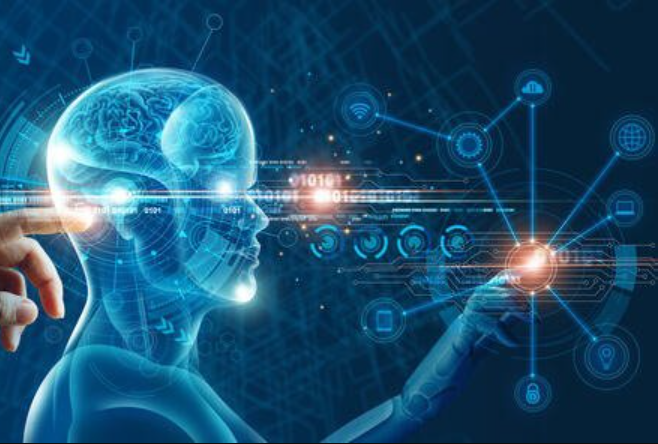Concord in Knowledge: Human-Centric Approaches Past Algorithms


Knowledge science helps clear up many issues by analyzing giant quantities of knowledge. However we should guarantee information and algorithms respect humanity. As information use grows, we should pursue a Data Scientist Course and analysis that locations folks first. By understanding human values and views, we are able to develop approaches that convey extra concord between information and society. When creating fashions, we must always take into account how all teams could also be impacted. With consciousness and care, information science needn’t come at the price of human well-being. It may well uplift lives when guided by rules of equity, ethics, and repair to humanity.
Introduction: The Human Contact in Knowledge
Knowledge has grow to be an integral a part of our each day lives. From social media to on-line procuring to navigation apps, information powers a variety of applied sciences we work together with each day. Nevertheless, as information assortment and utilization has elevated exponentially, issues round privateness, bias and ethics have additionally grown. There’s a want to maneuver past simply algorithms and analytics in information and convey the human perspective to the forefront. Human-centric approaches purpose to grasp information from a human lens and foster concord between information and other people.
Understanding Human-Centric Knowledge Approaches
Human-centric information approaches deal with understanding information from the human perspective. They purpose to put folks on the middle of knowledge practices somewhat than simply seeing information as numbers, figures and statistics. Some key elements of human-centric information approaches embody understanding human values, wants, behaviors and contexts. They study how information assortment and utilization can affect folks. Additionally they purpose to design information programs and options which can be simple to grasp, management and profit people. Transparency, consent, privateness and equity are necessary rules of human-centric approaches. General, the purpose is to steadiness each enterprise wants in addition to human wants via information.
The Affect of Human Bias on Knowledge
Whereas information is believed to be goal, human biases inevitably creep into completely different elements of knowledge dealing with. Biases in information assortment strategies, variables chosen, questions requested can all skew the info in sure instructions. Analyzing such biased information can additional amplify and propagate these biases. For instance, facial recognition programs have been discovered to have larger error charges for ladies and other people of colour because of biases within the datasets used to coach these fashions. Equally, language fashions have been proven to select up dangerous stereotypes from the info they’re skilled on. You will need to acknowledge and mitigate human biases in information to make programs truthful and inclusive for all.
Moral Concerns in Human-Centric Knowledge Dealing with
With nice information comes nice accountability. As custodians of individuals’s information, corporations have an moral obligation to respect privateness, get hold of significant consent and guarantee information is used for the good thing about humanity. Key moral elements in human-centric information dealing with embody acquiring opt-in consent, offering management over private information, being clear about information utilization, guaranteeing privateness and safety, conducting affect assessments and audits, and mitigating any potential harms. Knowledge ought to be collected and used pretty with out discrimination. The pursuits and well-being of individuals ought to be prioritized over industrial or different pursuits. Upholding robust moral requirements helps construct belief in information programs and fosters accountable innovation.
Human-Centric Knowledge Visualization Methods
Knowledge visualization is a strong approach to derive insights from information however visuals can be overwhelming or deceptive if not designed properly. Human-centric visualization methods purpose to current information in simple to grasp, significant and useful methods for folks. Some approaches embody utilizing minimal however efficient visible encodings, incorporating visible metaphors that map to real-world ideas, using interactive and dynamic visuals for exploration, designing for common usability throughout talents, guaranteeing readability of objective and message in visuals. Codecs like dashboards with contextual storytelling are additionally efficient. The purpose is to make advanced information digestible and facilitate higher resolution making via visualization.
Empathy in Knowledge Evaluation: Understanding the Consumer
To really serve customers, analysts want to grasp consumer views and contexts. Growing empathy for customers helps body evaluation with the correct questions. Methods like consumer interviews, journey mapping and ethnographic analysis present deep insights into consumer ache factors, frustrations, psychological fashions and wishes. Personas are useful to symbolize completely different consumer segments. Situations primarily based on qualitative findings assist consider how options would possibly affect customers. Focusing evaluation on consumer targets and duties somewhat than simply metrics results in extra significant insights. Testing evaluation and options with actual customers ensures the human lens is just not misplaced. Empathy strengthens the connection between information and people.
Consumer-Centered Knowledge Modeling
Knowledge fashions ought to be designed with the consumer in thoughts to make sure they’re useful, usable and keep away from potential harms. Consumer analysis gives necessities for fashions. Iterative design and testing with customers helps refine fashions. Methods like mannequin playing cards and information statements enhance transparency. Interfaces ought to use easy, plain language for comprehension. Controls enable customers company over private information and inferences. Explanations enhance understanding of advanced fashions. Bias and equity testing evaluates impacts on susceptible teams. General, prioritizing the consumer expertise results in fashions folks can perceive, belief and profit from.
Challenges and Options in Human-Centric Knowledge Practices
Whereas human-centric approaches purpose to steadiness enterprise and human wants, there are additionally challenges. Massive-scale qualitative analysis may be resource-intensive. Measuring subjective human impacts is tough. Making certain equity throughout various world populations is advanced. Lack of range in tech groups can undermine empathy. Rules differ globally. Nevertheless, many options additionally emerge similar to leveraging blended strategies, participatory design, multi-stakeholder partnerships, benchmarking progress, diversifying workforces and harmonizing requirements. General, an open, collaborative method together with accountable management and governance helps deal with challenges and advance the sector of human-centric information.
The Way forward for Human-Centric Knowledge: Balancing Algorithms and Human Perception
As data-driven applied sciences grow to be much more pervasive sooner or later, balancing algorithms and human perception might be essential. On one hand, advances like federated studying, differential privateness and homomorphic encryption may help make programs extra privacy-preserving and reliable. However, applied sciences like interactive machine studying and mixed-initiative programs enable people to supply suggestions to algorithms in real-time. Hybrid analyst-algorithm collaboration leverages the strengths of each. Democratizing information via methods like cooperative information sharing additionally fosters shared advantages. General, an moral, inclusive and sustainable future of knowledge relies on fostering concord between people, algorithms and information via accountable innovation and human-centric approaches.
Conclusion: Fostering Concord between People and Knowledge
In conclusion, as information turns into more and more integral to our lives and societies, human-centric approaches present a balanced path ahead. They purpose to put folks on the coronary heart of knowledge practices via rules of empathy, ethics, transparency, equity and shared profit. Whereas challenges stay in scaling qualitative strategies and addressing biases, collaborative options are rising. Fostering understanding between various stakeholders is essential. With accountable management and governance, in addition to improvements that mix algorithms and human perception seamlessly, we are able to construct information programs that actually serve humanity. General, prioritizing the human expertise in information helps foster concord between folks and information for a brighter, extra inclusive future.
Hashtags: #Concord #Knowledge #HumanCentric #Approaches #Algorithms
Keep Tuned with Googleadda.com for extra History



